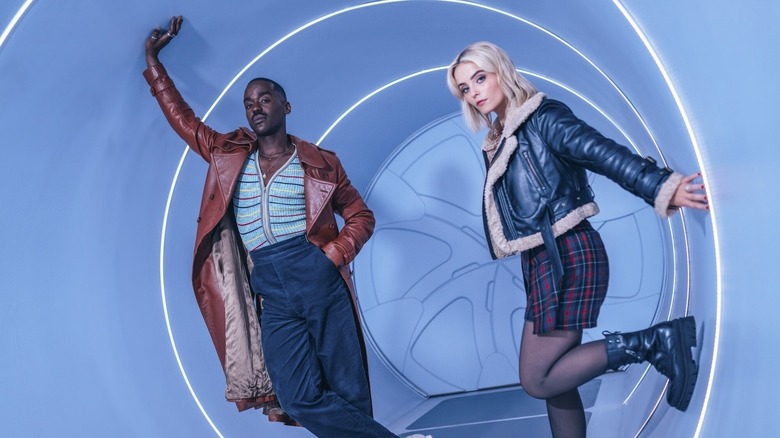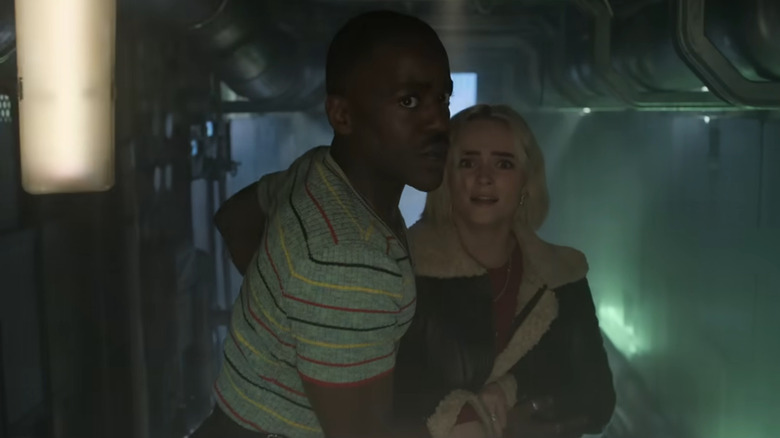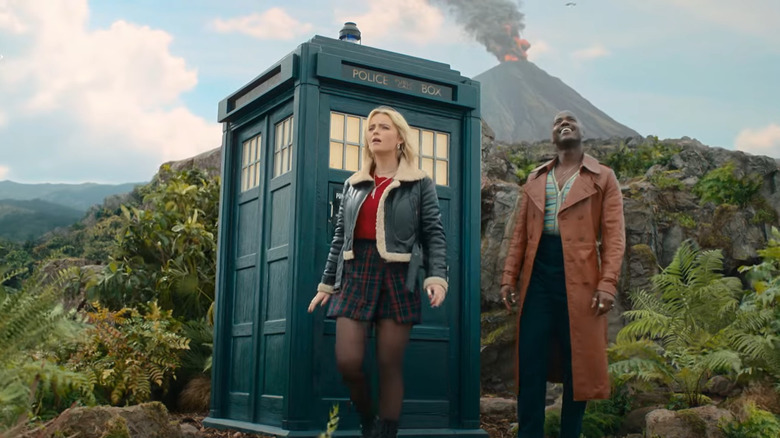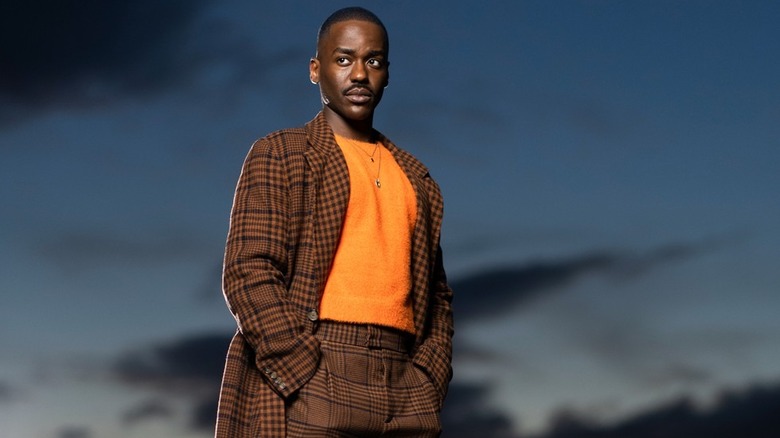Doctor Who Review: Just As Fun, Cheesy And Heartfelt As Ever
It's a strange time to be a Whovian. The show has recently switched showrunners yet again, but this time it's to someone we already know. Russell T. Davies ran "Doctor Who" from seasons 1 through 4; although he was controversial back in his day, the fandom warmed to him more than ever the moment he was out the door, replaced by the less character-focused Steven Moffat. For years, the Moffat vs Davies debate raged across the fandom, before the unambiguously disappointing Chibnall era (seasons 11-13) made the whole thing feel a little trivial. Once we were offered neither inventive timey-wimey plots nor compelling characters to follow, both Moffat and Davies seemed perfectly fine.
When Davies first returned for a string of 60th Anniversary specials last year, this idea was only reinforced; the episodes were often cheesy and the sci-fi plotlines rarely held up to scrutiny, but there was a clear heart and style to the episodes that the Chibnall era lacked. The camera moved around with vibrant intentionality, rather than the stiff, heavy close-up approach of the Chibnall years. The chemistry between Donna and the Fourteenth Doctor was as charming as fans could've hoped, and that energy continued even in the Christmas special, where all the familiar faces from the RTD era had been left behind.
"The Church of Ruby Road" promised to be the start of a new season — arguably season 14, but technically season 1 of a new show — with an entirely fresh feel. Davies may technically be a step back into the past, but the Christmas special promised a step forward into new, unprecedented territory. So with the two episodes provided to critics so far, how has the new season held up to that promise?
A bad first impression, a great second one for the new Doctor Who
The seasons' opening episode is a little too familiar. With Ruby's introduction already out of the way, "Space Babies" follows most of the same plot beats as "The End of the World" from the revival's original season 1: the Doctor once again takes his companion out to a spaceship in the distant future, letting Ruby embark on the same basic learning curve Rose Tyler went on. The episode treats us to an alien villain that's almost as juvenile as the Slitheen or the Abzorbaloff, and includes sequences that are so cloyingly cute and cheesy that you might be embarrassed to watch it with someone else in the room. The opening episode also features a ton of clunky but well-meaning social commentary, as well as plenty of heartwarming, character-building moments for both Doctor and companion. In other words: The Russell T Davies era is back, for better and for worse.
But although it's the opener's trip to the future that feels strangely set in the show's past, the second episode's trip to the '60s feels refreshingly forward-thinking. "The Devil's Chord" is the show's first ever proper musical episode, giving "Once More With Feeling" from "Buffy the Vampire the Slayer" a run for its money. The episode not only perfectly utilizes its alien-of-the-week format to make its musical premise work, but like "Buffy" before it, the episode is filled with surprisingly serious, important moments that are sure to have major repercussions down the road.
"The Devil's Chord" is easily the standout episode so far, to the point where it's hard not to wonder why the season didn't air it first. Perhaps they were worried it would feel too repetitive right after the Christmas episode featured its own brief musical number, but the result is that the new season doesn't start off on its strongest foot. "Space Babies" implies that Davies has barely grown at all as a writer since he first left the show fourteen years ago; "The Devil's Chord" makes clear that this is a wiser, more ambitious Davies than we've ever had before.
Plenty for Moffat fans to enjoy
Although Davies still seems less interested in exploring the intricacies of time travel-related paradoxes than Moffat was, these first few episodes of the season still play around with time far more than his original era did. In "Space Babies," the short exploration of the butterfly effect is about as unserious as the ongoing "mavity" gag throughout the 60th Anniversary specials, but when "The Devil's Chord" starts messing around with time, things feel startingly serious. It's a noted departure from the Davies' era, where the TARDIS tended to drop the characters off in one specific place and time for the entire episode. Moffat was the first showrunner to properly play around with time, and it feels like Davies has now taken some inspiration from his approach.
Another cue from Moffat: the season's ongoing mystery is already given more emphasis than you'd expect from a Davies-run season. While not as serialized as season 6, the constant mentions of Ruby's parentage (sure to be revealed by the finale) take up more time in the two-part premiere than Bad Wolf or Torchwood or Harold Saxon ever did. It's reminiscent of the Impossible Girl arc with Clara in season 7, with the added benefit that Ruby feels far more like her own three-dimensional character, not simply a puzzle for the Doctor to piece together.
It's an approach that should be appreciated by the fans who've always believed that Moffat and Davies represent two extremes in showrunner approach and that the best version of the show would be a middle ground between the two. The fact that Moffat's come back to write the season's third episode, "Boom," is particularly promising. Everything he wrote back in Davies' era was undeniably strong.
The queerest Doctor yet
Ncuti Gatwa is not just the first openly queer actor to play the Doctor, but his version of the character is the most straightforwardly queer we've had yet. Unlike most previous Doctors, his outfits change significantly with each episode, and many of them go far outside the bounds of what the character has typically worn in their male, straight-presenting incarnations. (Some would say that Jodie Whitaker's Doctor was the first truly queer version of the character, but...nope.) Meanwhile, Ruby is openly bisexual and surrounded by queer friends and family members, and she and the Doctor are constantly playing around with gender norms and expectations.
It's a fun evolution of Davies' original "Doctor Who" run, in which the LGTBQ+ themes and representation were largely forced to be channeled through innuendo and winks to the audience. As hard as it might be for some LGBTQ+ fans to imagine, there were plenty of Whovians who had no idea Captain Jack Harkness was pansexual until the adult-centric spinoff "Torchwood" made it explicit; the new "Doctor Who" leaves no such room for error.
The other notable change is just how joyful Gatwa's Doctor is. Although he is still haunted by the revelations of The Timeless Child arc, the time to heal that Tennant's Fourteenth Doctor was given really does seem to have helped Fifteen a ton. This Doctor is the most optimistic and lighthearted version of the character we've seen since at least the classic series; even if that's unlikely to last, it's still a massive breath of fresh air for now. In keeping with the series' decision to rebrand itself as a new show, a fresh start from the revival series, this Doctor acts like a huge weight's been lifted off his shoulders. Although just two episodes in, the new "Doctor Who" season has already proven itself to be a bold, lively, kindhearted show; it's still cheesy and awkward at times, but that energy and excitement goes a long way.
/Film rating: 7 out of 10.
"Doctor Who" premieres on Disney+ on May 10, 2024.



